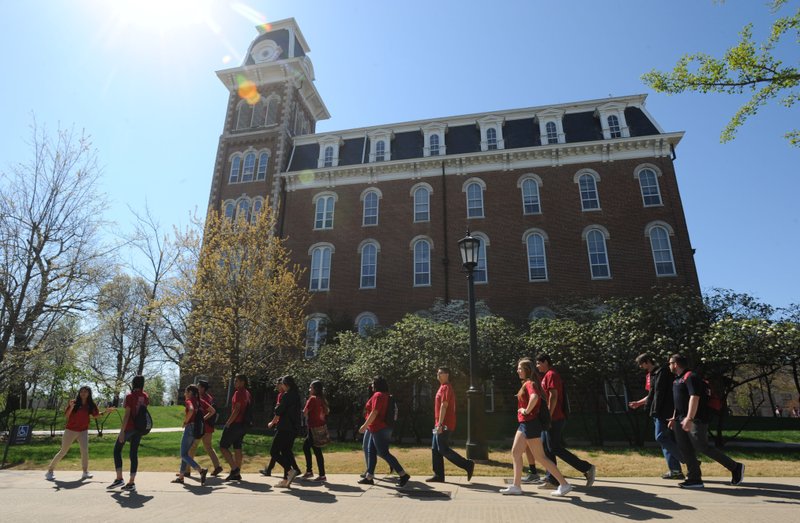The University of Arkansas System's board of trustees asked a federal judge Tuesday to dismiss a lawsuit challenging a policy revision that three faculty members say makes it easier to fire tenured professors.
In March 2018, when the board amended the faculty tenure policy, Michael Moore, the system's vice president for academic affairs, said that "nothing in the proposed changes undermine academic freedom or the value that the University of Arkansas System places on tenure."
But the plaintiffs said the revision allows trustees and administrators to use annual reviews as a basis for termination and provides more "grounds" that an administrator could cite in firing someone.
Tenure is defined by the UA System as the right of continuous appointment. Professors gain tenure based on their job performance over several years, though they still undergo annual reviews.
In court documents filed Tuesday, the system's associate general counsel, David A. Curran, said, "The revised policy sensibly requires performance improvement plans for faculty members who receive unsatisfactory evaluations, clarifies the grounds for termination, and makes other reasonable changes."
He said it also reflects that tenured and tenure-track faculty members, unlike at-will employees, may only be terminated for cause; guarantees academic freedom in teaching, scholarship and service; protects faculty members' right to speak as citizens on matters of public concern "without institutional censorship or discipline;" and confers numerous pre-termination procedural rights "that far exceed the minimum requirements of the Due Process clause" of the Constitution.
The lawsuit alleges that the revision violates faculty due-process rights by retroactively modifying faculty contracts. It was filed by three faculty members at three UA institutions: Philip Palade, a pharmacology and toxicology professor at the University of Arkansas for Medical Sciences in Little Rock; Gregory Borse, an associate professor of English and philosophy at the University of Arkansas at Monticello; and J. Thomas Sullivan, a distinguished professor of law at the W.H. Bowen School of Law at the University of Arkansas at Little Rock.
Before the board unanimously approved the revision, faculty members argued that the changes were too broad and could threaten intellectual freedom by allowing faculty members to be fired for intellectual disagreement.
The old tenure policy lists four examples of grounds for dismissal: "incompetence, neglect of duty, intellectual dishonesty, and moral turpitude."
The revised policy lists 12 examples of grounds for dismissal, including "a pattern of conduct that is detrimental to the productive and efficient operation of the instructional or work environment."
The lawsuit, assigned to U.S. District Judge James Moody Jr., seeks class-action status.
Curran argued that the plaintiffs don't have legal standing -- a vested interest in the outcome of the case -- because none have received a notice of termination under the current policy. He also said the law doesn't require contract and performance standards "to be frozen for the entirety of each tenured and tenure-track professor's career."
"Faculty members have always been on notice that the Board reserved the right to amend Policy 405.1, and the most recent amendments lie at the heart of the Board's fiduciary obligation to maintain an efficient and productive workplace while preserving a robust marketplace of ideas," he wrote.
He asked the court "to reject Plaintiffs' invitation to second-guess the Board's judgment on matters of internal governance," and throw the case out for failure to bring a claim that can be pursued "under any legal theory."
In a 45-page brief, Curran also cited previous examples of revisions the board made to the policy; discussed the obligation of institutions of higher learning to "assess and adjust their policies;" and outlined the history of the revision in question.
Metro on 07/17/2019
